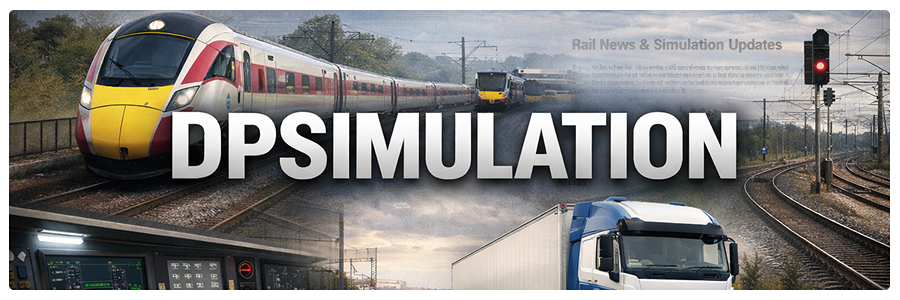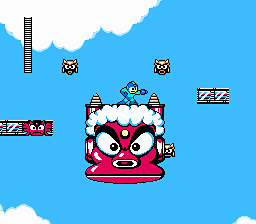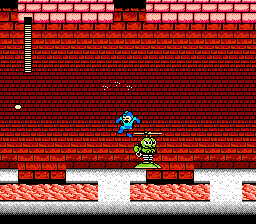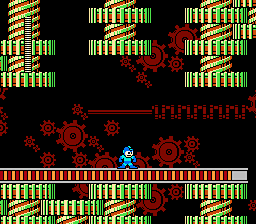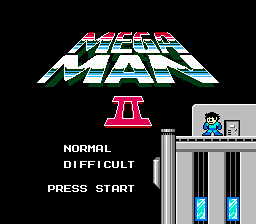
Mega Man 2 (1989-)
Developer: Capcom
Publisher: Capcom
Genre: Platform
Mega Man 2 is a platform action game developed and published by Capcom for the Nintendo Entertainment System, released in 1988 in Japan and later in North America. It serves as the direct sequel to the original Mega Man, building on its foundation while refining gameplay mechanics and level design. The game was later re-released on various platforms, including the PlayStation and Game Boy Advance as part of compilation collections, as well as through digital distribution on modern consoles. Mega Man 2 was inspired by the success of the first game, aiming to expand the series’ appeal with more diverse levels, tighter controls, and a greater focus on strategic weapon use against enemies.
In Mega Man 2, players once again take on the role of the titular robot hero as he faces Dr. Wily, who has returned with a new set of Robot Masters threatening global peace. The game features eight distinct stages, each themed around a unique boss, with environmental hazards, platforming challenges, and enemy patterns that require both precision and timing. A signature gameplay element is the ability to acquire the special weapon of each defeated Robot Master, allowing players to approach subsequent levels strategically by exploiting boss weaknesses. The levels are designed with multiple routes and secret areas, providing incentives for exploration and mastery beyond simply completing the stages.
The soundtrack of Mega Man 2 is widely celebrated, featuring energetic and memorable compositions that match the theme and pace of each stage. Each Robot Master level has a distinctive track, reinforcing the identity of the stage while keeping the gameplay engaging. Sound effects highlight actions such as jumping, shooting, and acquiring new weapons, contributing to a satisfying and responsive player experience. The music, in particular, has achieved iconic status, often cited as some of the most recognizable and influential in video game history.
Mega Man 2 was promoted as a major advancement over its predecessor, emphasizing improved graphics, expanded gameplay, and more intricate stage designs. Upon release, it received widespread acclaim from both critics and players for its polished mechanics, challenging yet fair difficulty, and compelling music, solidifying its reputation as a classic NES title. The game’s success led to numerous sequels, including Mega Man 3, which continued to expand the series’ mechanics and narrative. Over time, Mega Man 2 has appeared in multiple compilations and re-releases, maintaining its status as a benchmark for platform action games and a beloved entry in the Mega Man franchise.
Images from MobyGames
Buy Mega Man 2
Click one of the Ebay or Amazon buttons below to check the latest prices and purchase Mega Man 2 for the Nintendo Entertainment System.

Related Searches
Mega Man 2 NES Download
Mega Man 2 is available to purchase and download from a range of vendors. Always shop around...
Mega Man 2 NES Manual
Various repositories around the internet have scanned and archived a range of retro manuals. Search now to.....
Mega Man 2 NES Rom
We don't host or link to rom sites for this game. However, there are many sites out there that may be...
Mega Man 2 NES Walkthrough
Many sites - particularly YouTube - host a range of walkthrough videos to guide you in your quest to get...
Mega Man 2 NES Cheats
There are various sites out there that can offer cheat codes for games. Search now to find all available...
Mega Man 2 NES Controls
This information can often be obtained through the user manual. Alternatively there are many sites out there...
Mega Man 2 NES Release Date
The initial release date for Mega Man 2 is stated as June 1989. Other ports of the game may..
Mega Man 2 NES Review
There are many sites out there that have collated and documented historic reviews of this game. Search now...
Mega Man 2 Famicom
As a Nintendo Entertainment System release, this game was also likely also available on the Famicom. This....
Mega Man 2 NES Speedrun
There is now a community of competitive speedrunners who will try and gain the fastest possible time on their....
